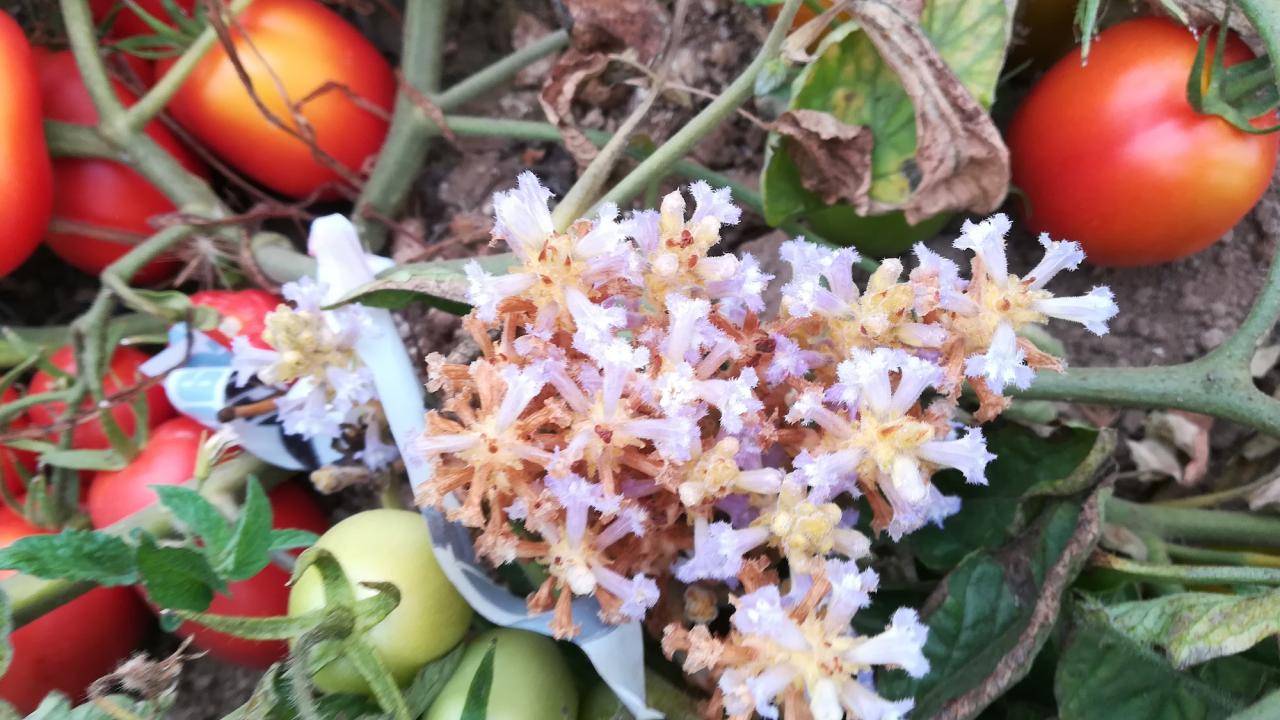
UC Davis Chile and Israeli researchers are working on an integrated control model to tackle a parasitic weed in industrial tomato crops
The control model has been implemented in field trials in the last two seasons, with promising results.
Parasitic plants in agricultural crops cause significant economic losses, since they extract water and nutrients from their host crops. Such is the case of broomrape species which attach to host roots and cause devastating effects to many vegetable and field crops, especially in areas with Mediterranean climate (como Chile central). One broomrape plant can produce hundreds of thousands of minute seeds easily dispersed to short and long distances, which can remain dormant in the soil for more than 20 years. This parasitic weed attaches to crop host roots and can cause 100% yield loss, infest soils for other susceptible crops, and is a quarantine species in countries with which Chile has commercial relationships.
The industrial tomato - a crop of economic importance in Chile - is increasingly affected by broomrape. For this reason, in 2017 the processing tomato industry approached UC Davis Chile to address the challenge of controlling this weed. For this purpose, the center of innovation contacted the Agricultural Research Organization (ARO) - Volcani Center, in Israel, in which researchers developed a successful broomrape integrated control model. UC Davis Chile together with Israeli researchers are carrying out a project to adapt this control model to Chilean conditions.
At first the project has confirmed -by molecular diagnostics- that the broomrape attacking tomato crops in Chile is branched broomrape (Phelipanche ramosa). The broomrape integrated control model considers, among other variables, climate, soil and water characteristics, presence of other weeds, pests and diseases as well as agricultural management practices (machinery, fertilization, irrigation, crop rotation).
The model is based on accumulated growing degree days (GDD), that is, the sum of heat units over a base threshold, which serves as a parameter for the parasitism prediction of broomrape development on tomatoes. In addition, it considers sanitary and cultural measures, and specific selective chemical control measures. The objective of this management model is to control broomrape, improve the productivity and profitability of the infected fields, reduce the broomrape seedbank and the risk of further infestation to other fields.
In the last two seasons, UC Davis Chile together with the Israeli researchers have conducted field trials in which the control model has been implemented with promising results.